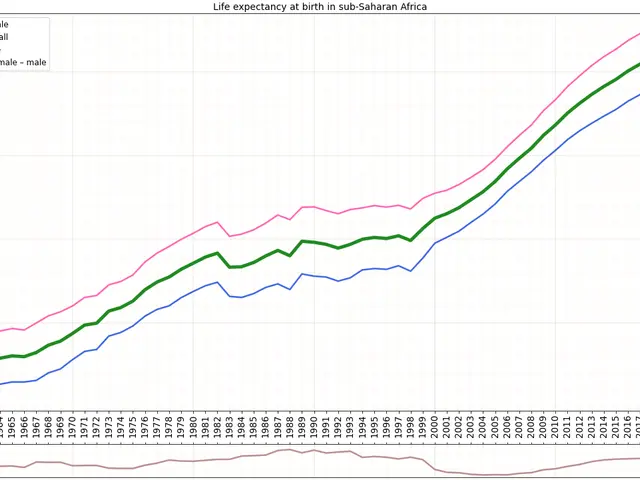Increase in Hospital Admissions Among Young Females Due to Eating Disorders
Subtitle: A Deep Dive into the Rising Trend and Its Impact on the Healthcare System
Over the past two decades, there has been a significant rise in eating disorders such as anorexia nervosa, bulimia nervosa, and binge-eating disorder among young females in Germany. This trend mirrors a broader European pattern, with contributing factors including sociocultural pressures about body image amplified by social media, psychological stressors, genetic vulnerability, and increased awareness and diagnosis leading to more reported cases.
According to epidemiological studies and government health reports, the incidence of eating disorders, especially in adolescence and young adulthood, has been on the rise. While exact prevalence figures vary by study, Germany has seen an increase in outpatient treatment demand and hospital admissions over the past 20 years.
The impact on the healthcare system is substantial. Eating disorders are associated with high morbidity and mortality, requiring long-term management and placing financial and resource burdens on healthcare providers. In 2023, around 12,100 patients were treated in hospital for eating disorders, compared to 12,600 cases in 2003. Notably, the number of girls and young women treated for eating disorders in hospitals has doubled in the past 20 years, from 3,000 in 2003 to 6,000 in 2023.
The average length of treatment for eating disorders in 2023 was 53.2 days, the highest figure since 2003. The average length of a hospital stay was 7.2 days. By the time patients are admitted to hospital, they are often already severely ill.
In 2023, around 459,000 people in Germany had a diagnosed eating disorder. The number of deaths attributed to eating disorders has fluctuated over the years, with 78 deaths in 2023 and 100 in 2008.
The COVID-19 pandemic has acted as an accelerator in the increase of eating disorders, particularly among children who became isolated and turned their attention to issues of eating and weight, as well as social media. Girls are directly addressed by relevant videos on social media regarding eating disorders, and the booming self-optimization scene and questionable ideals have been referred to as factors contributing to eating disorders.
For up-to-date, specific German national data, one should consult sources such as the German Federal Statistical Office (Statistisches Bundesamt), the German Society for Eating Disorders (Deutsche Gesellschaft für Essstörungen), peer-reviewed epidemiological studies published in medical journals, and reports from the German healthcare system on mental health trends.
Read also:
- Attempting a 'Secretome' Skincare Serum from harvested Stem Cells of Your Own
- Skincare products, including an anti-sebum cream, cleanser, and moisturizer, embolden a positive outlook towards one's skin.
- Fraudulent misappropriation of funds intended for terminally ill adolescents in Munich
- Woman in Texas files lawsuit against Marine, alleging drug-laced beverage with aborted fetus medication




